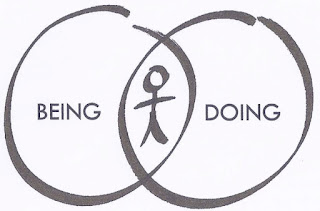Keeping ALL His Commands
Jesus told his disciples at the Last Supper, “If you love me, keep my commands.” (Jn. 14:15) As Christians we look to these words of Jesus as a kind of mission statement and a guiding principle in what we do and how we even define what it means to be a disciple. While some of Christ’s commands may seem easier than others, they are all challenging and all call us to move out of our comfort zones.
We are commanded to repent (Mt. 4:17), to avoid anger (Mt. 5:21-22), to be forgiving towards others (Mt. 18:21-22), to pray for our enemies (Mt. 5:44), and to care for the disadvantaged and suffering (Mt. 25:31-48). These commands of Christ form the heart of Christian morality and social justice. Although difficult at times, no one doubts the seriousness of the call to obey these commands, just as no one doubts Christ’s intention that these apply to any and all who would call themselves disciples.
When we read how Jesus said that the world would know we are his by our love (Jn. 13:35) we apply this standard to our lives, individually and collectively as a church. We recognize that love for each other is a hallmark of what it means to be a follower of Jesus. Likewise, we take the words of Jesus to be light and salt (Mt. 5:13-15) to the world as a command to share our faith with others as a way of giving glory to the Father.
Even the more challenging demands of Christ are not taken lightly. When he challenges us to cut off a limb or gouge out an eye rather than sin (Mt. 5:28-30) we understand our call to holiness is serious. As Catholics we accept his word that the bread and wine become his Body and Blood, and his command to “Do this” in and through the celebration of the Mass.
But there are some commands of Jesus that we do not take seriously. There are certain commands that we actively ignore. We make excuses and develop elaborate theologies to explain these commands away. We say they don’t apply to us. They seem odd and outdated, something for a less modern world.
Which commands am I talking about?
“‘The harvest is plentiful, but the laborers are few; therefore ask the Lord of the harvest to send out laborers into his harvest. Go on your way…Whenever you enter a town and its people welcome you, eat what is set before you; cure the sick who are there, and say to them, “The kingdom of God has come near to you.” (Lk. 10:2,8-9)
“And he said to them, ‘Go into all the world and proclaim the good news to the whole creation. The one who believes and is baptized will be saved; but the one who does not believe will be condemned. And these signs will accompany those who believe: by using my name they will cast out demons; they will speak in new tongues; they will pick up snakes in their hands, and if they drink any deadly thing, it will not hurt them; they will lay their hands on the sick, and they will recover.” (Mk. 16:15-18)
Jesus commands his followers to “heal the sick” and even says that miraculous signs will accompany “those who believe”—not just the apostles or super holy. Yet, so many Christians today, Catholic and Protestant, either doubt or outright deny the power of God to heal today. For many Catholics they may allow for such wonders, but only in the extraordinary lives of the saints or special places like Lourdes. The thought that an average believer could possibly pray for and see the sick healed is just too much to believe. It’s a little ironic that we can believe in transubstantiation, the forgiveness of sins, various apparitions or weeping statues, but have such a hard time believing the very plain words of Christ.
Of course, to really believe and follow the command of Jesus to “heal the sick” requires a whole different kind of faith of us than loving others or caring for the poor. Nothing brings you out of your comfort zone like offering to pray for someone to be healed from their injury, disease, or suffering. It is completely out of our control, and totally dependent upon God. I can pray, but the Holy Spirit is the one who works the miracle, or not. On the other hand, there is something liberating about this also, whether or not someone is healed when I pray for them doesn’t depend on me. All that is required of me is faithfulness to Jesus’ command to pray and a little faith—the size of a mustard seed—that God is able to do work. The greatest risk to me is looking a little foolish if nothing happens, but the reward when someone does experience the healing presence of God is so much greater than the risk!
With the new year upon us and the need to come up with a new resolution, perhaps this year resolve to follow all of Jesus’ commands, including praying for the sick to be healed. This isn’t just intercessory prayer in our private prayer closets; it is laying our hands on the sick and praying for them in person. We are called to be faithful to the command and the more we are the greater our faith will grow and we will see God move to heal. With so many hurting people around us everyday the greatest gift we can give them is an encounter with the healing love and presence of Jesus.




Comments